| Gemstone Chart |
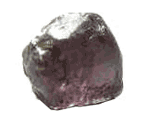 Natural Color Change Garnet Natural Color Change Garnet
Color Change Garnet is one of the most rare, interesting, and phenomenal of all gems.Color Change Garnet gem stone rough from Madagascar Gems is fine quality.
Color: Color changing from green or lavender to red.
Categories: semi-precious stone
Crystal Group: Cubic
Refractive Index: Nesosilicate
Hardness: 7-7.5
Density: 3.8
Occurrence: East Africa, Madagascar, Sri Lanka
| 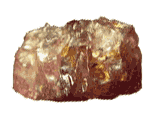 Natural Color Change Sapphire Natural Color Change Sapphire
A rare variety of sapphire, known as color changing sapphire, exhibits different colors in different light. A color change sapphire is blue in natural light, and violet in artificial light. A similar effect is also seen in alexandrite.
Color: Color changing blue to purple, greenish brown to red
Categories: semi-precious stone
Chemical Composition: AL22O3
Crystal Group: Hexagonal
Refractive Index: 1.759-1.778
Hardness: 9
Density: 4
Occurrence: Ceylon, East Africa
| 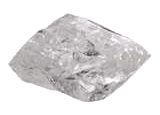 Natural Danburite Natural Danburite
Danburite is a very spiritual stone that carries a pure vibration. With a hardness of 7, danburite is quite hard and suitable for any kind of jewelry. Danburite handles easily and ordinarily offers no problems for lapidaries. It makes an especially brilliant gem because of its extreme clarity.
Color: White, yellowish, very light pink, buff colored, very light brown
Categories: semi-precious stone
Chemical Composition: calcium borosilicate
Crystal Group: Orthorhombic
Refractive Index: 1.630(+.003,-.003) - 1.636 (+.003, -.003)
Hardness: 7
Density: 3
Occurrence: Danbury, Connecticut and Russell, New York, USA; Charcas, San Luis Potosi, Mexico; Kyushu Island, Japan; Mogok, Burma and Uri, Switzerland; Madagascar.
| 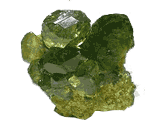 Natural Demantoid Natural Demantoid
The demantoid is one of the most brilliant gemstones that exist, yet until recently it was little known except among collectors and gemstone lovers.
Color: Green, yellow green.
Categories: semi-precious stone
Chemical Composition: Ca3Fe2(SiO4)3
Crystal Group: Cubic
Refractive Index: 1.888 - 1.889
Hardness: 6.5
Density: 3.82 - 3.50
Occurrence: Russia, Namibia, Iran, South Africa
| 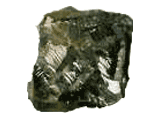 Natural Diamond Natural Diamond
Diamond is the ultimate gemstone, having few weaknesses and many strengths. It is well known that Diamond is the hardest substance found in nature.
Color: White, yellow, brown, black. Rarely, blue, red, or pink.
Categories: precious stone
Chemical Composition: C
Crystal Group: Cubic
Refractive Index: 2.417
Hardness: 10
Density: 3.52
Occurrence: Africa, Russia, Canada, Australia, India
| 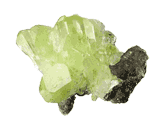 Natural Diopside Natural Diopside
Diopside is a common mineral and is found worldwide. Diopside has several varieties, including a chromium-rich gem variety called chrome diopside.
Color: pale bluish green or dark blue green, brownish green or dark blue green. yellowish green or yellow bluish green.
Categories: semi-precious stone
Chemical Composition: CaMgSi2O6
Crystal Group: Monoclinic
Refractive Index: 1.665 - 1.730
Hardness: 6
Density: 3.25 - 3.55
| 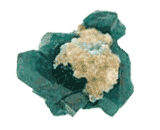 Natural Dioptase Natural Dioptase
Dioptase is an intense emerald-green to bluish-green copper cyclosilicate mineral.Dioptase is a rather unusual gemstone that will rarely be found in your basic jewelry stores. It is a beautiful gemstone with a very unusual combination of green colors.
Color: Dark blue green, emerald green, or turquoise
Categories: semi-precious stone
Chemical Composition: CuSiO2(OH) 2
Crystal Group: Hexagonal
Refractive Index: RI 1.644 ĘC 1.709
Hardness: 5
Density: 3.28 ĘC 3.55
Occurrence: Russia, Tsumeb Namibia, California and Colorado USA, Congo, Zaire, Chile
| 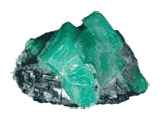 Natural Emerald Natural Emerald
Emerald, the green variety of the mineral beryl, is the most famous and favored green gemstone.The majority of the worlds gem quality Emeralds come from the Muzo area of Colombia.
Color: Blue, Green Blue
Categories: precious stone
Chemical Composition: Be3Al2(SiO3)6
Crystal Group: Hexagonal
Refractive Index: 1.577(+-.016), 1.583 (+-.017)
Hardness: 7.5-8
Density: 2.72 (-.05, +.12)
Occurrence: Brazil, Pakistan,Russia, East Africa, India, Madagascar, Columbia
|
|
